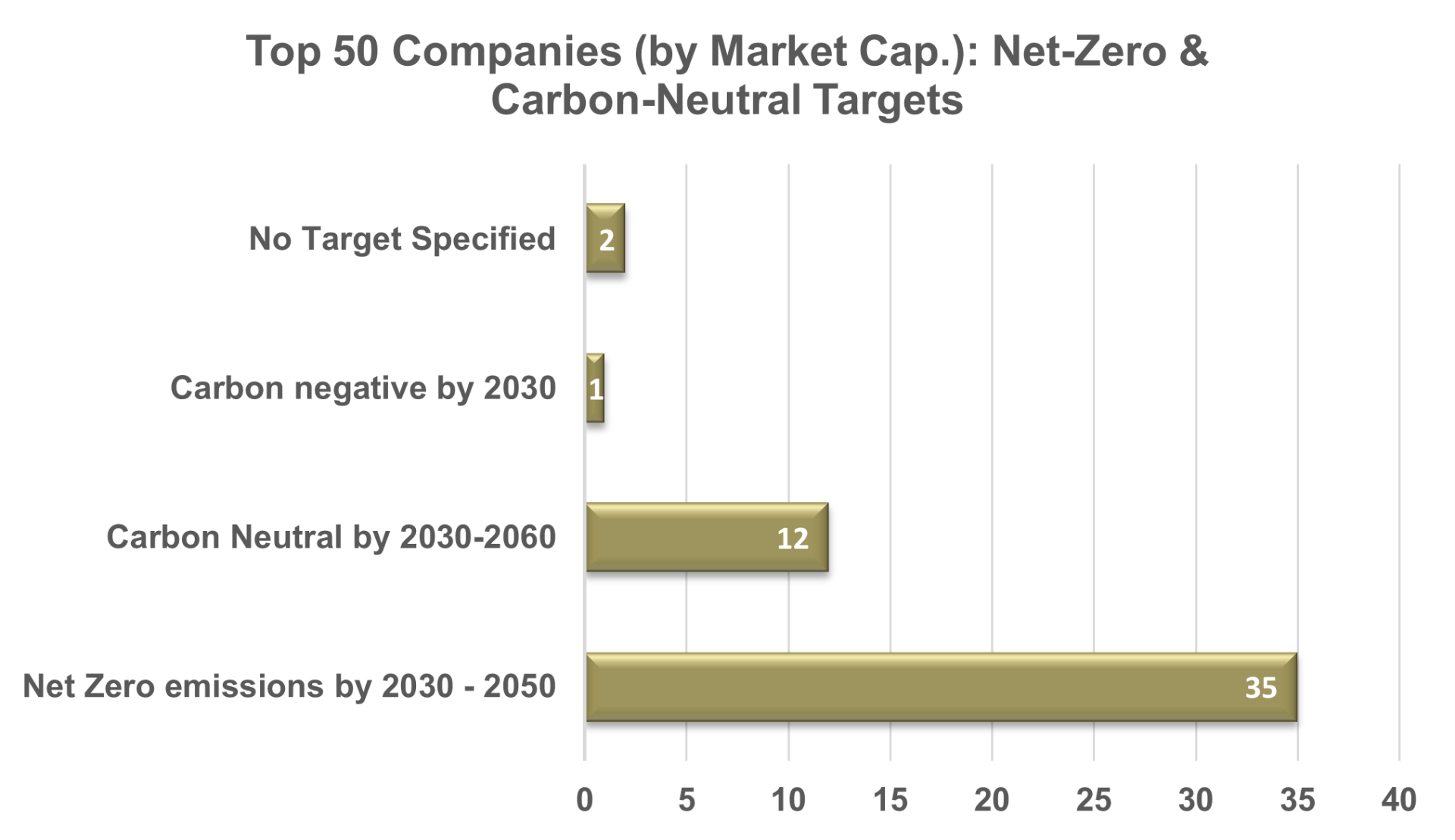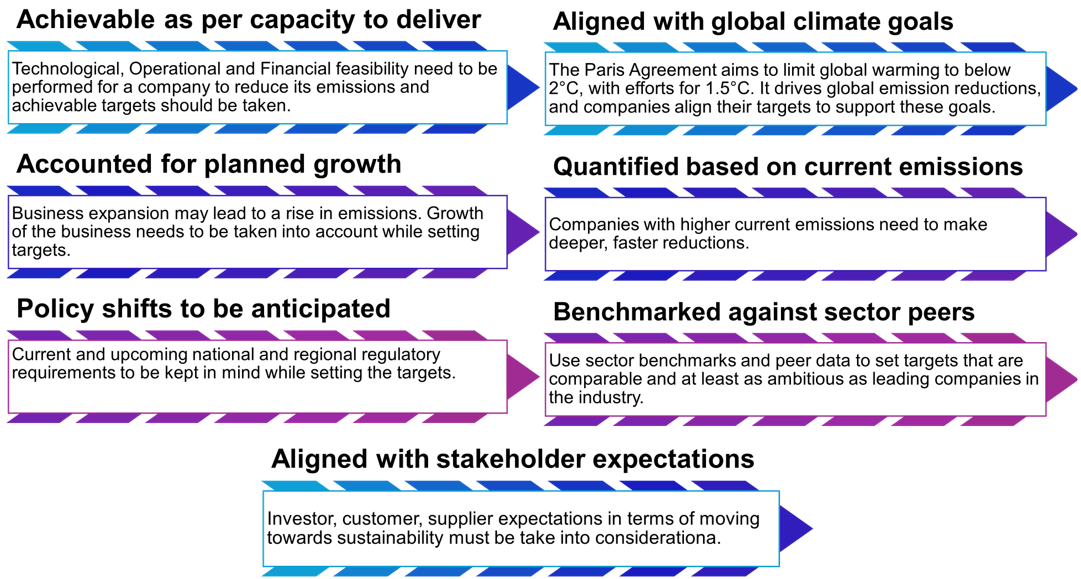After calculating your company’s greenhouse gas (GHG) emissions, the next step is to set meaningful climate goals by:
Step 1: Choose a baseline year to serve as the benchmark for measuring progress;
Step 2: Define your GHG reduction target relative to a chosen baseline year and specify the target year for achieving it.
Step 1: How to Select a Baseline Year
A baseline year is the year that is used as a reference point to compare future emissions.
There’s no fixed rule to choose the Baseline Year — following parameters can be used to select the same:

Step 2: Define your GHG Reduction mission statement and Target Year to achieve it
Example of mission statement: To reduce emissions by 50% by 2030 compared to 2018 emissions levels (Here, 2018 is the baseline year).
Targets should be clear, achievable-yet-stretched, measurable and time-bound. Ideal targets are those that:

In the end, each company’s targets depend on its sector, emissions profile, and readiness to transition. But the end goal remains the same: cutting emissions fast enough to stay within what the planet can handle.
